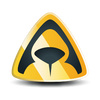Whmcs 8.3.0 Dockerized
Whmcs 8.3.0 Dockerized. Deploy Whmcs in seconds without the headache of having to troubleshoot missing plugins, modules, or bad permission issues.

What's Whmcs.
Starting your own web hosting business or offering web services to clients is a great way to deliver value added services to clients. For web designers and developers, it can be a way to bundle additional services with a client and maintain an ongoing relationship after development has completed.
A client management panel such as WHMCS can be used to automate the creation and management of web hosting services for clients. In this article, we'll outline what WHMCS is and how it can be used for your business.
For more information and related downloads for Whmcs and other Whmcs products, please visit https://www.whmcs.com/.
Why Release It.
The initial files are nothing to do with me, I picked them up here if you want to see them.
Whmcs is surprisingly popular and just like most other self hosted software it's a pain in the arse to install and get up and running perfectly.... Hence how we ended up here!
About the Script.
The script will install MySQL Server 8 & Whmcs 8.3.0 via docker. All MySQL data will be persistent along with all data the downloads, attachments & templates_c directories.
The script moves, downloads, attachments, templates_c out of the document root directory for security purposes.
Cron has been set up fully and works within the docker container.
All recommended modules have been installed as per Whmcs recommendations.
In short, it takes a lot of the ball ache out of it for you. 👍
Using the Script.
The script is a single line executable that can be run as follows:
cd ~/
wget -O deploy.sh https://files.scripting.online/whmcs/whmcs-8.3.0.sh
chmod +X deploy.sh
sh ./deploy.sh somepasswordReplace somepassword with the password you would like to assign to the MySQL root user.
During the installation its going to stop and ask you to continue the installation in a browser. This doesn't mean the script is finished!
Complete this part of the installation in a browser at http://localhost/install/install.php then return tot the script and press [Enter]. This will run a scrip inside the docker container that will finish securing your installation.
Once the installation is complete open the following link to login. http://localhost:/admin
Enjoy - If you need any help or support then contact the author support@scripting.online.

